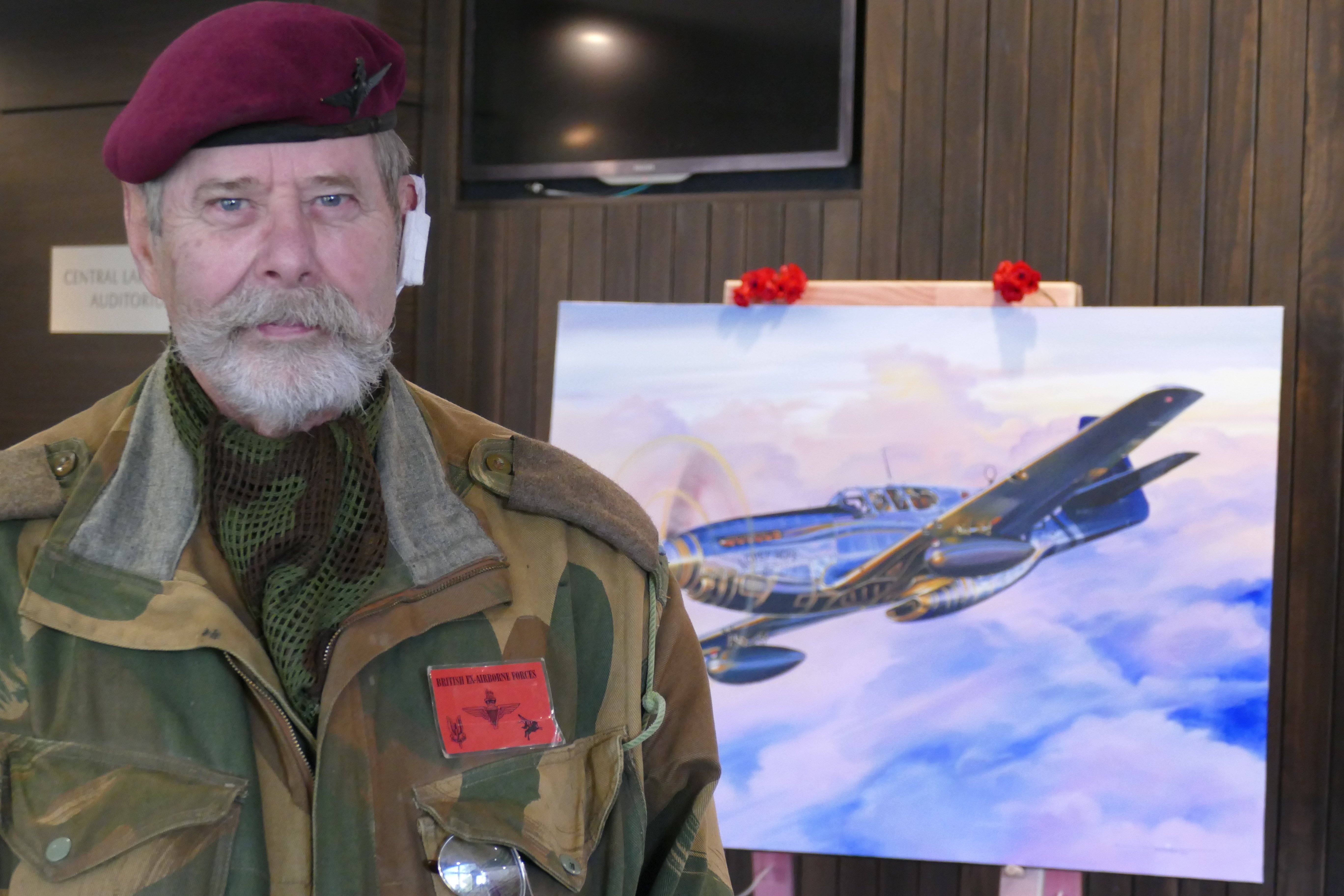
Mr Wademan, known locally for his aviation paintings, said Anzac Day gave him more reason to pause and reflect on his forebears.
His maternal grandmother, Alice Bailey, went to France during World War 1 as a nurse, aged just 18, tasked with looking after wounded soldiers.
One such soldier was 17-year-old Albert (Nelson) Sharr who had lost his left eye in a bunker attack.
Mr Wademan said, as his nurse, Alice took Albert back to England, where she later married him.
Years later the couple’s second child, Evelyn Sharr, had met Bob Wademan, who flew Spitfires in World War 2 and was shot down three times.
Bob Wademan had earlier proposed to her in the middle of an air raid, using Morse code.
Later, Spike Wademan followed in his father’s footsteps and became a member of the Air Cadets.
In 1970, aged 24, he joined the 44th Parachute Brigade mechanised unit, meaning he drove vehicles for other units, and "demobilised" enemy vehicles.
"You don’t want them taking ammunition from an ammunition depot, so we’d go in [during] the evening, so the next morning when it came time for them to load up and take them from the depots, their vehicles wouldn’t work."
He spent most of his time peace-keeping in Dhekelia, Cyprus, with the Swedish and Canadian forces, patrolling the Troodos Mountains.
Mr Wademan said he had two brushes with death, both on training missions. One was when an exit from a Hercules didn’t go to plan for another member of his unit, and once during diving training, when he suffered "nitrogen narcosis", but was rescued in the nick of time by a friend.
He met his now-wife Sue in London and after serving in the Parachute Brigade for four years, he followed her to Australia, where joined the army reserves.
He was doing helicopter work there and getting ready to deploy to Vietnam when the war ended.
"I thought, ‘bugger’.
"I was looking forward to a little bit more excitement, but maybe that saved my life."












